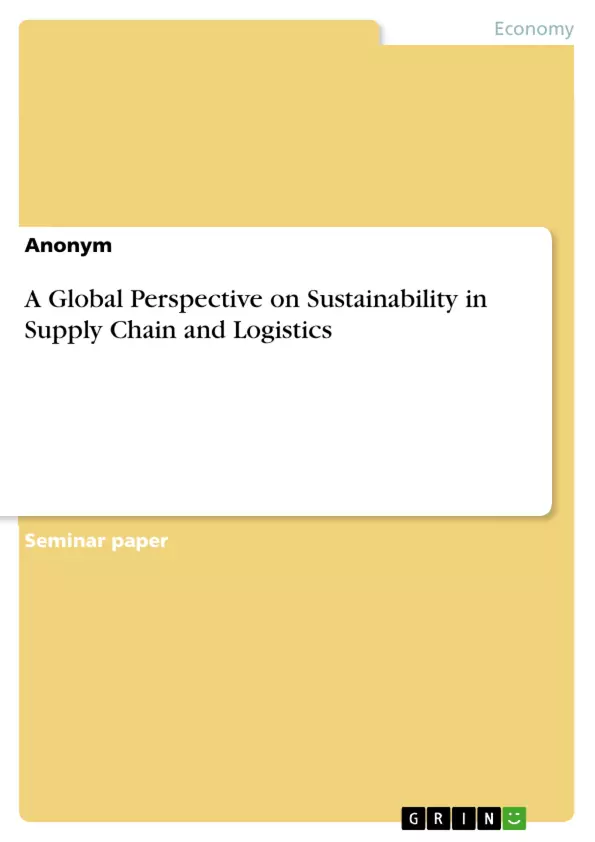This paper aims to offer a comprehensive overview of social sustainability in global supply chains by reviewing the extant literature. It also identifies possible future research directions.
This review identifies, categorizes, and describes the main drivers, barriers, and structural changes that are needed to address the challenges of social sustainability adoption. The results also reveal the overall positive impact of social sustainability adaption.
When it comes to sustainability, most people’s first thought would be about the environmental perspective of sustainability. In fact, the environment is only one aspect of sustainability. The Triple Bottom Line (TBL) model is a framework that expands the traditional focus on economic performance by incorporating two additional dimensions: social and environmental impact. It encourages organizations to adopt a more holistic and balanced approach to business decision-making, i.e. profit, planet and people.
Inhaltsverzeichnis (Table of Contents)
- Introduction
- Theoretical background
- Methodology
- Findings
- Descriptive analysis
- Content analysis
- Discussion
- Conclusion
Zielsetzung und Themenschwerpunkte (Objectives and Key Themes)
This paper aims to provide a comprehensive overview of social sustainability within global supply chains by conducting a systematic review of existing literature. It also seeks to identify potential avenues for future research in this field.
- Social sustainability in global supply chains
- Drivers and barriers to social sustainability adoption
- Structural changes required for social sustainability
- Impact of social sustainability adaptation
- Future research directions
Zusammenfassung der Kapitel (Chapter Summaries)
The introduction establishes the research context and outlines the paper's objectives. The theoretical background section delves into the concept of social sustainability and its relevance to global supply chains. The methodology chapter describes the systematic literature review process, including the search strategy and selection criteria. The findings section presents the results of the literature review, categorizing the identified drivers, barriers, and structural changes related to social sustainability adoption. It also discusses the overall positive impact of social sustainability adaptation. The discussion chapter analyzes the implications of the findings for both focal firms and suppliers seeking to transition their supply chains towards greater social sustainability. It highlights the potential for managing social sustainability alongside social and economic sustainability.
Schlüsselwörter (Keywords)
The paper focuses on the key terms of supply chain management, social sustainability, and systematic literature review (SLR). It examines the intersection of these concepts and explores the practical implications for achieving social sustainability in global supply chains.
- Quote paper
- Anonym (Author), 2023, A Global Perspective on Sustainability in Supply Chain and Logistics, Munich, GRIN Verlag, https://www.hausarbeiten.de/document/1399944


